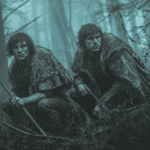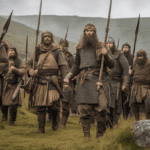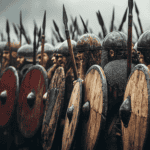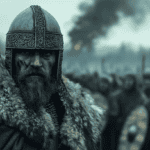
In the seventh century CE the Picts living in what is now Northern Scotland faced a dual threat to their way of life: Christian missionaries within their borders and the growing power of Northumbria to the south. As the Anglian Kingdom of Northumbria expanded, making regular incursions into Pictish territory, the need for strong central leadership became apparent. The Picts, recognizing the effectiveness of Northumbria’s monarchical system, began to shift from their traditional tribal structure to a unified kingdom under a single ruler.
Northumbria’s formidable resources and manpower had already subjugated neighboring tribes, including the Scots of Dalriada and Argyll, and the Britons of Strathclyde. Even Pictish lands to the north fell under Northumbrian influence, with puppet kings installed to serve Anglian interests.
Enter Bridei Mac Billi, or Brude Mac Bile, a pivotal figure in Pictish history. Considered one of the greatest Pictish kings, Brude halted Northumbria’s advance and liberated his lands from their influence. His actions would have far-reaching consequences, effectively setting the early boundaries of what would later become England, Scotland, and Wales.
The Rise of Brude and the Road to Conflict
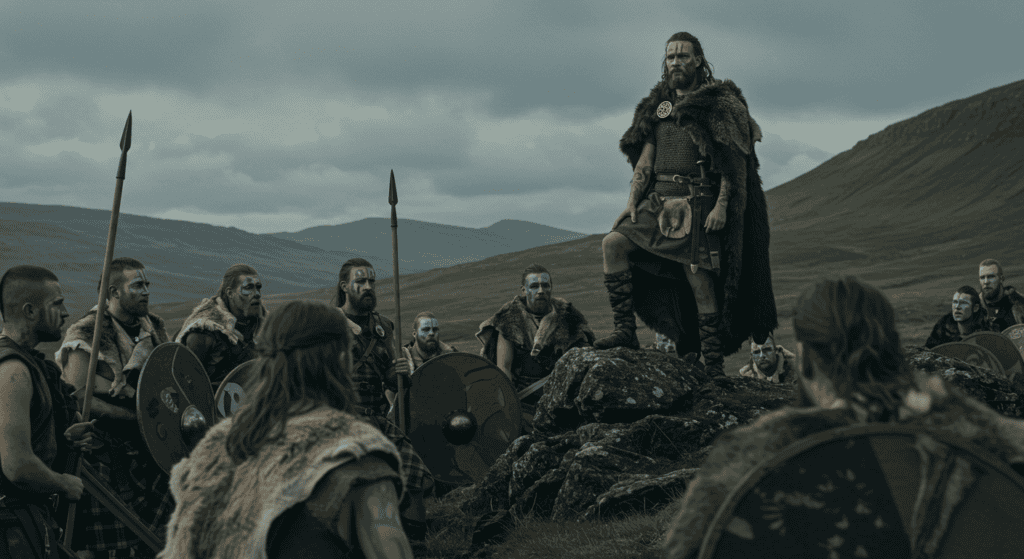
Brude’s ascension to power is shrouded in controversy. Some suggest he was installed by his cousin, the Northumbrian king Ecgfrith, on the condition of regular tribute. Others believe he rose to power following the Northumbrian defeat of the Northern Picts at the Battle of Two Rivers in 670 CE.
Regardless of his path to the throne, Brude quickly demonstrated his independence. Initially sending tribute south, he soon ceased this practice as he consolidated his power. Ecgfrith, displeased with this development and further aggravated by Pictish raids into his kingdom, decided it was time to remove Brude and teach the Picts a lesson.
As Ecgfrith contemplated military action, Brude was busy strengthening his position. By 683 CE, he had secured his northern, eastern, and western boundaries through a series of strategic conquests, including the capture of Dunottar, the subjugation of Orkney, and the taking of the Scots’ capital, Dunadd.
The Battle of Dun Nechtain: A Turning Point
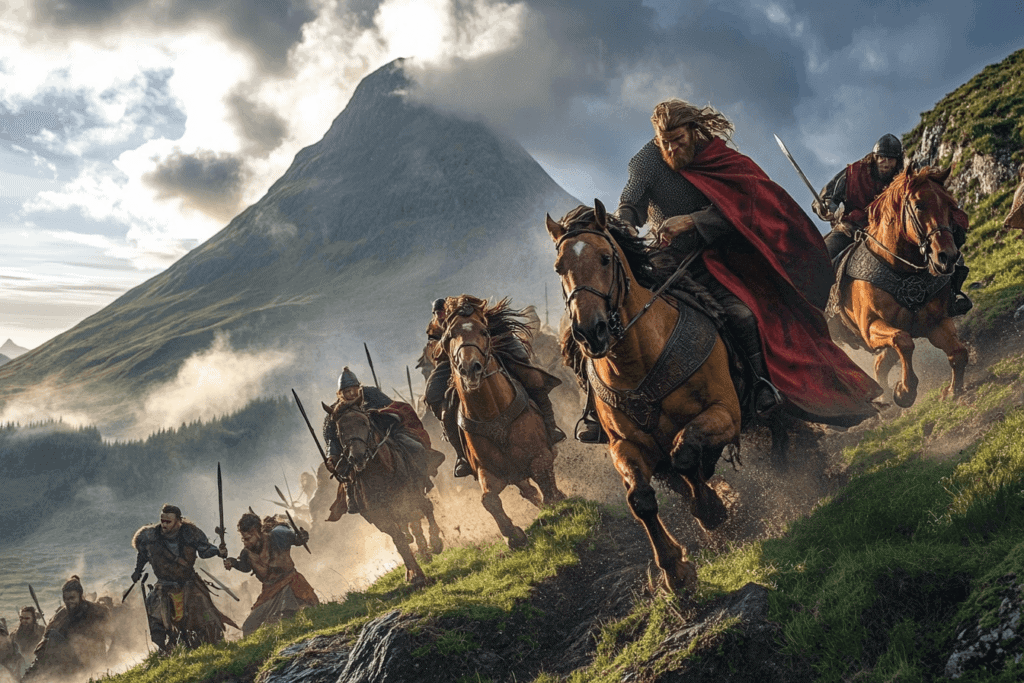
In May 685 CE, tensions finally boiled over. Ecgfrith, rejecting diplomatic solutions, led a cavalry force north into Pictish territory. Brude, employing clever tactics, lured the Angles deeper into his lands before springing his trap at Dun Nechtain.
The battle was a masterclass in strategy. Brude’s forces, vastly outnumbering the Angles, feigned retreat, drawing Ecgfrith’s cavalry into a charge uphill. At the critical moment, the Picts turned and held their line, repulsing the charge and sending the Angles reeling back towards treacherous marshes. Brude then launched a devastating counter-attack.
The result was a decisive Pictish victory. As the historian Bede recounts, “Henceforward the hope and strength of the English realm began to waver and decline”. Northumbria’s power was broken, and the borders of Pictish lands – the future Scotland – were secured.
Legacy of Dun Nechtain
The Battle of Dun Nechtain not only secured Pictish independence but also had far-reaching cultural implications. It drove out the Roman-influenced Christian missionaries, allowing the Celtic Columban brand of Christianity to flourish in the highlands.
Brude’s reign, lasting until his death in 693 CE, ushered in a period of peace and security for the Picts. His successors continued to defend Pictish lands, with Brude Mac Derile defeating another Anglian invasion in 698 CE and issuing the groundbreaking “Law of the Innocents”, which set guidelines for the ethical conduct of war.
The transformation of the Picts from a loose confederation of tribes to a unified kingdom capable of repelling one of the most powerful forces in Britain marked a turning point in Scottish history. It set the stage for the eventual formation of the Kingdom of Alba, the precursor to modern Scotland, and gave its inhabitants the belief that they could resist their stronger southern neighbor.


